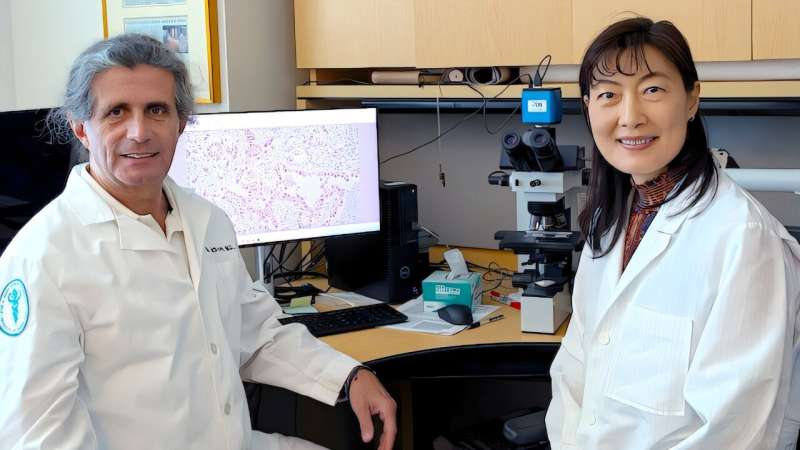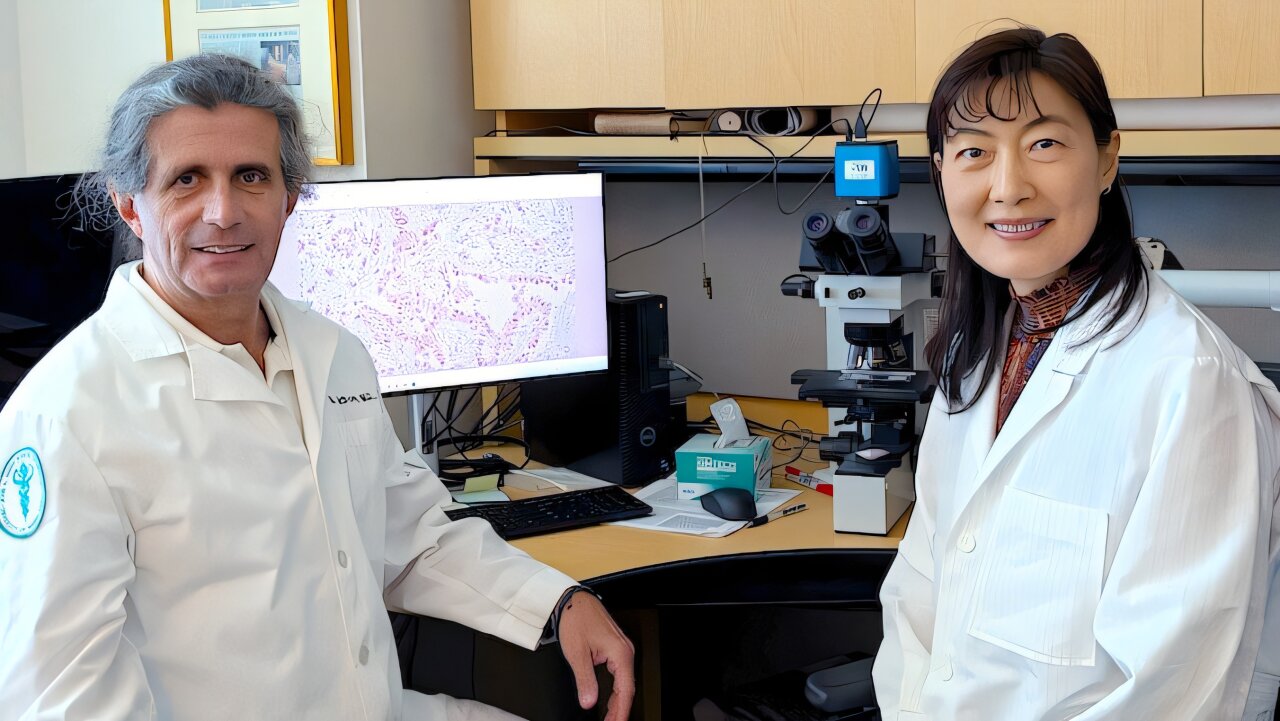
Michele Carbone and Haining Yang. Credit: UH Cancer Center
University of Hawaiʻi Cancer Center researchers have identified a new, less aggressive form of mesothelioma that offers patients greater hope for survival and treatment success. Led by Michele Carbone and Haining Yang, the team’s findings were published in the Journal of Thoracic Oncology.
The variant, called low-grade BAP1-associated mesothelioma (L-BAM), stems from inherited mutations of the BAP1 gene and is biologically different from the aggressive, asbestos-related form of the disease. Unlike traditional mesotheliomas, which resist most therapies, L-BAM often responds well, allowing some patients to live nearly normal life spans. These patients also face higher risks of other cancers, including melanoma, kidney, breast and liver cancers, making regular screening and early detection critical.
“By recognizing L-BAM as a separate disease, physicians can diagnose patients more accurately and recommend therapies that are more likely to succeed,” said Carbone, professor at the UH Cancer Center. “This discovery means that many families facing what was once considered a uniformly lethal cancer now have new hope.”
Impact in Hawaiʻi and worldwide
Mesothelioma is a rare cancer of the membranes that cover the lungs and abdomen. About 3,000 new cases are diagnosed annually in the U.S., resulting in roughly 2,500 deaths, according to the American Cancer Society. In Hawaiʻi, around 10 cases are reported each year.
The cancer and its genetic cause were first identified by Carbone and Yang while studying families in Louisiana, Wisconsin, and remote villages in Turkey. They collected samples for genetic analysis at the UH Cancer Center, and some families later traveled to Hawaiʻi to provide additional specimens and receive cancer screening.
Later studies found the condition in diverse groups, including Chinese, Japanese, Native Hawaiian, Jewish, Palestinian and White families. Today, testing is available both in the U.S. and abroad.
“The discovery of L-BAM underscores that research conducted at the University of Hawaiʻi Cancer Center has both local and international impact,” said Yang. “Cancer research improves the lives of us all regardless of ethnic groups, nationality and social status.”
More information:
Michele Carbone et al, Clinical and Pathologic Phenotyping of Mesotheliomas Developing in Carriers of Germline BAP1 Mutations, Journal of Thoracic Oncology (2025). DOI: 10.1016/j.jtho.2025.06.020
Provided by
University of Hawaii at Manoa
Citation:
Discovery of treatable mesothelioma variant highlights importance of genetic screening and early detection (2025, September 30)
retrieved 30 September 2025
from https://medicalxpress.com/news/2025-09-discovery-treatable-mesothelioma-variant-highlights.html
This document is subject to copyright. Apart from any fair dealing for the purpose of private study or research, no
part may be reproduced without the written permission. The content is provided for information purposes only.
